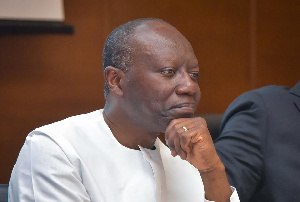5 Reasons Why the U.S. Dollar is Weakening

The U.S. dollar (USD) has long held the status of the world’s dominant reserve currency, prized for its stability, liquidity, and the economic strength of the United States. However, in recent months and years, signs of weakening have emerged — not just in terms of exchange rates against other major currencies but also in its relative global influence. The weakening of the dollar can have far-reaching implications for the global economy, trade balances, inflation, and investment flows.
Here are five major reasons behind the dollar’s weakening:
1. Monetary Policy Easing by the Federal Reserve
One of the primary drivers of currency valuation is interest rates. When the U.S. Federal Reserve adopts a more dovish stance — meaning it lowers interest rates or signals that it will do so — it tends to reduce the yield on dollar-denominated assets, making them less attractive to investors.
In recent times, the Fed has signaled a pause or reduction in rate hikes following aggressive tightening in 2022 and 2023. While those hikes were aimed at controlling inflation, subsequent data suggesting slowing growth and falling inflation has led the Fed to soften its stance. The anticipation or realization of lower rates diminishes the appeal of the dollar relative to currencies from economies offering higher returns on investment.
Additionally, the expansion of the Fed’s balance sheet through bond-buying programs (quantitative easing) injects more dollars into the economy, increasing supply and further devaluing the currency.
2. Widening U.S. Fiscal Deficits
The fiscal health of a country significantly affects its currency. In the United States, the federal budget deficit has ballooned due to a combination of tax cuts, increased military and social spending, and expansive stimulus packages aimed at stabilizing the economy in the aftermath of crises such as the COVID-19 pandemic.
When a country runs high and persistent deficits, it must borrow to finance the gap. The U.S. government does this by issuing Treasury bonds. However, an overreliance on debt can spook investors, especially if they believe the debt trajectory is unsustainable. This erodes confidence in the dollar and increases fears of inflation, prompting investors to seek safer or more stable alternatives.
Furthermore, when foreign buyers lose appetite for U.S. debt, the value of the dollar can fall due to lower demand for dollar-denominated assets.
3. Global De-dollarization Efforts
Over the last decade, but particularly in recent years, there has been a growing trend among major economies to reduce their reliance on the U.S. dollar. This process — often referred to as “de-dollarization” — involves countries diversifying their reserves away from the USD, conducting trade in other currencies, and forming alternative financial infrastructure.
For instance, countries like China and Russia have actively sought to settle trade deals in yuan or rubles, bypassing the dollar entirely. Moreover, BRICS nations (Brazil, Russia, India, China, and South Africa) have discussed forming a common currency or trade settlement system to rival the dollar’s dominance.
While these efforts are still in their early stages and the dollar remains deeply entrenched in global finance, even marginal shifts in reserve allocations or trade settlement patterns can impact demand for the dollar, putting downward pressure on its value.
4. Trade Imbalances and Current Account Deficits
The United States has long run a trade deficit — meaning it imports more than it exports. While this situation has been manageable due to strong capital inflows and the dollar’s reserve currency status, it remains a structural weakness.
A persistent current account deficit implies that more dollars are leaving the country than coming in, increasing the supply of dollars in the global market. This surplus supply relative to demand can weaken the currency over time.
Moreover, other countries with stronger trade surpluses (like Germany or China) tend to see their currencies appreciate relative to the dollar, particularly when global trade grows and reliance on U.S. imports declines. As global supply chains adjust post-COVID and in response to geopolitical tensions, some trade rebalancing is slowly emerging, shifting the currency dynamics.
5. Geopolitical Tensions and Declining Global Trust
Lastly, the geopolitical landscape plays a critical role in the strength of a currency. The dollar has traditionally been seen as a “safe haven” during periods of uncertainty. However, rising geopolitical tensions — particularly U.S.-China relations, the ongoing Russia-Ukraine war, and fractures in global alliances — have raised concerns about the reliability of the dollar as a neutral and apolitical medium of exchange.
Additionally, the use of the dollar as a tool for economic sanctions (such as freezing assets or cutting off access to U.S. financial infrastructure) has led some countries to question the benefits of holding dollars. While this strategy may serve short-term political goals, it can undermine long-term trust in the dollar as a global currency.
Investors and governments wary of political risk increasingly look to diversify into other currencies, commodities like gold, or even cryptocurrencies — all of which can dilute the dollar’s dominance and value.
The weakening of the U.S. dollar is not due to a single cause but rather a convergence of multiple economic and geopolitical factors. From domestic fiscal policies and Federal Reserve actions to international shifts in trade and finance, the dollar is under pressure from many sides.
While the dollar is unlikely to lose its reserve currency status in the near term, its relative weakening could signal a more multipolar global economy where other currencies play larger roles. For policymakers, this trend underscores the need for fiscal responsibility, proactive diplomacy, and the preservation of institutional trust — all crucial to sustaining the strength of the U.S. dollar in a rapidly evolving world.
As investors, businesses, and governments recalibrate their expectations and strategies, understanding these underlying forces is essential to navigating the currency markets in the years ahead.





